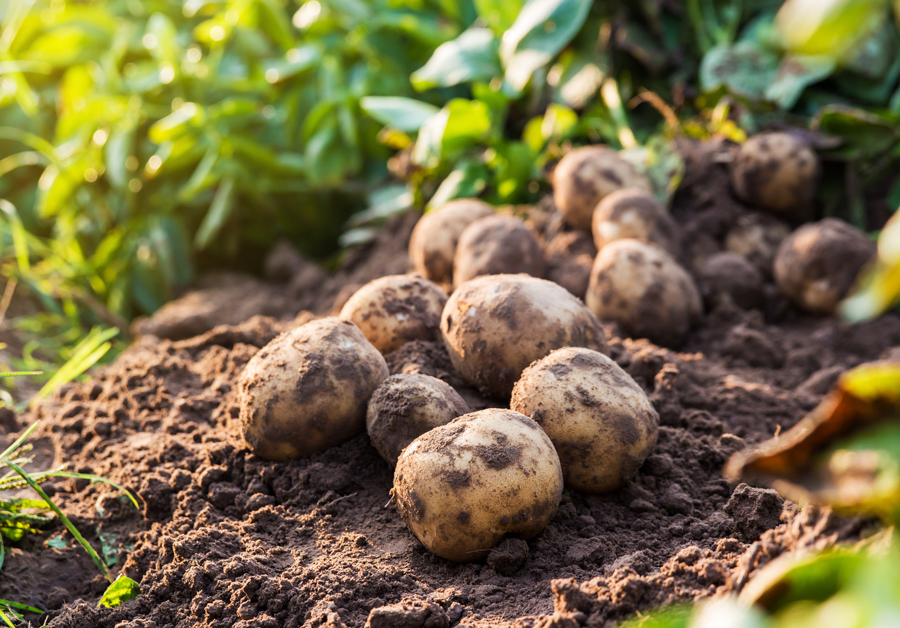HSE removes livestock feeding ban on maleic hydrazide-treated crop waste
25th July 2019
A ban on feeding maleic hydrazide-treated potato waste to livestock has now been lifted, leaving growers free to use the active ingredient without fear of losing their end markets.
A ban on feeding maleic hydrazide-treated potato waste to livestock has now been lifted, leaving growers free to use the active ingredient without fear of losing their end markets.
Maleic hydrazide – contained in products such as Crown MH and Fazor – is a plant growth regulator applied before harvest to help control volunteers and provide useful sprout suppression once potato tubers or onions are in store.
It can also be used to reduce secondary or chain tuberisation in potato ridges, which is triggered when crops are subject to intermittent periods of growth and non-growth, as seen in 2018.
Lack of data
When the active was granted Europe-wide reapproval 2017, approval holders lacked data to show that a maleic hydrazide metabolite known as 3-pyridazone posed no risk to consumers via livestock when fed with treated crop waste.
Subsequently, the Health and Safety Executive (HSE) placed a label restriction on any MH product sold after 1 May 2019, which stipulated that any out grades or peelings derived from treated potato and onion crops must not enter the livestock feed chain.
With packers and processors unable to guarantee segregation of treated and untreated waste without significant cost, it resulted in a “no-take” policy for crops treated with maleic hydrazide products carrying the restriction.
This might have left growers unable to use the product this season for fear of being unable to market their crops.
However, approval holders have now gathered the relevant data to complete all risk assessments and these have concluded that there are no safety concerns to livestock or consumers and as a result, HSE have lifted the restriction on all maleic hydrazide products.
Peace of mind
Crown MH is marketed in the UK by Certis and the company’s potato product manager Nick Badger says the news is positive for the industry, allowing growers to use the product with peace of mind ahead of the imminent maincrop harvest.
“Many potato crops suffered from secondary growth and tubers sprouting during last summer’s hot and dry weather, but when treated with maleic hydrazide both issues were adequately controlled.
“With the ban lifted growers can once again negate these problems, plus control volunteers and get some useful sprout suppression in store, without losing their end markets,” adds Mr Badger.
HSE has now issued an amendment to all existing authorisations for maleic hydrazide-containing products.
No further action is required by growers or agronomists, so all products can be used without restriction.

